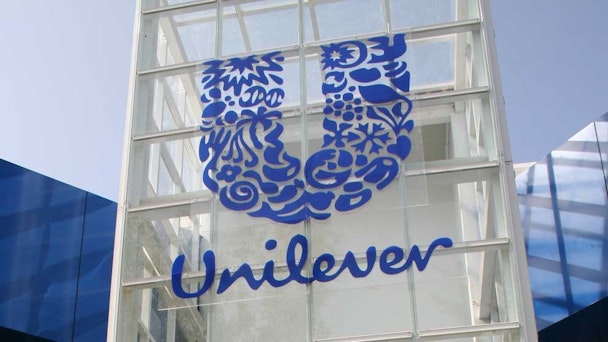Unilever commits to €7bn marketing spend ahead of challenging year
Unilever will invest €7bn (£6bn) into marketing over the coming year “to adequately support” its biggest brands as it increases product prices in the face of “unprecedented” inflation.

€7bn is roughly what Unilever invested in marketing in 2020
The FMCG giant today reported a 2.5% rise in sales for the third quarter. In the face of supply chain pressures and a 1.5% drop in the volume of goods sold, it has increased prices by 4.1%.
But it’s expecting challenges in the year ahead as the rising cost of goods and distribution weighs heavy on its operating margin. In a stark warning to consumers and retail partners, it said the prices for its biggest brands will continue to rise.
However, a cut in its €7bn advertising and marketing spend to offset these increases is not on the agenda.
Chief executive Alan Jope said as it prepares to hike prices it was “preoccupied with making sure that we are adequately supporting our brands.”
“More than 80% of our turnover is coming from brands that are stable or growing their brand power,” he said.
Brand power is a metric that is used to measure the impact of its advertising efforts and includes factors such as awareness, saliency and relevance.
“Our €13bn brands represent half of Unilever’s turnover. They were behind 65% of our growth in the third quarter. Our two biggest brands – Knorr and Dove – are growing 8%. Hellmann’s is up 10%, Magnum is up 11%, Vaseline up 20% and so on,” Jope continued.
“Our biggest and best brands are in rude health. So we’ll continue to invest heavily and watch our spend like a hawk.
“I certainly couldn’t cut BMI [brand and marketing investment] if it impacted the health of our brands. I won’t quantity it further – [keeping spend flat] means flat. We are pulling levers on BMI and overheads to deliver margin outcome.”
€7bn is roughly what the company invested in marketing in 2020, which was a €122m increase on 2019’s figure.
It echoes the strategy of competitor P&G, which reported its earnings to the market earlier this week. It’s feeling the same pressures, responding with price increases and hoping to maintain its $8.2bn ad spend. However, incoming chief executive Jon Moeller said it would divert larger portions of that budget to “more efficient” digital channels.
Unilever said it too will look at delivering “some efficiency” in its marketing spend, but offered no detail on how it would do this in the year ahead.
It has already put significant focus on moving budgets away from traditional media and into digital content, as well as culling the number of advertising agencies it works with by setting up an in-house division to manage certain aspects of its marketing. It has nearly 40 digital hubs.
Discussing the results, Chris Daly, chief executive at the Chartered Institute of Marketing, said Unilever remains positive despite a perfect storm of rising prices from shipping costs to raw materials.
“The pandemic has accelerated a change in how people shop and entertain themselves. Unilever has identified e-commerce as a key channel for the future – not only for sales, but also for advertising. Its strategy is evolving, moving away from traditional platforms such as TV and toward gaming and streaming platforms. In recent months Unilever has developed tie-ins with Fortnite and Animal Crossing, aiming to grow its relationship with younger consumers, which will continue to pay dividends in the future,” he said.
“While today’s results are good news for Unilever – and its digital marketing-first strategy will have established a solid foundation for growth next year – with a spectre of prolonged shortages in the run-up to Christmas presenting fresh challenges, the consumer goods company shouldn’t rest on its laurels.”
Taking action on brands dragging it down?
Though Jope talked up the spend it was using to fuel the growth of its already successful brands, analysts on the earnings call questioned if the time hadn’t come for it to get radical on those that are underperforming, including those in its Tea and Beauty divisions as well as Lifebuoy, which has seen a double-digit drop in sales after impressive growth during the pandemic.
Its approach so far has been to pull out underperforming brands in each category and create a dedicated unit.
For example, beauty brands including Tigi, Q-Tips and Impulse have been brought under a single ‘Prestige Beauty’ entity called Elida.
Jope avoided comment on selling these brands off completely, instead stressing that “when we put dedicated focus on underperforming middle-tier brands they respond.” In 2020 they generated a combined €600m.
He said that funneling ad spend into e-commerce channels to support these brands is one tactic that’s paying off. 50% of sales for Prestige Beatuy now come from online sales.

